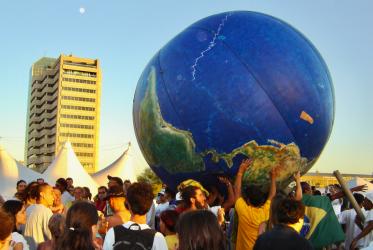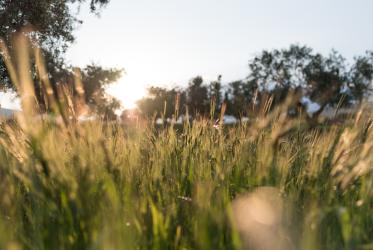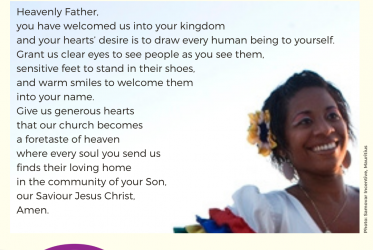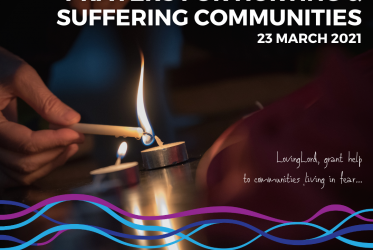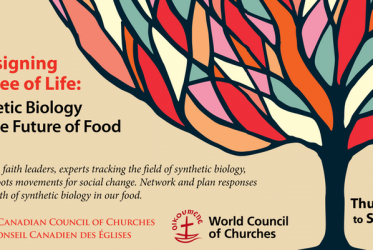Displaying 1 - 19 of 19
WCC Eco-School for Europe and North America region
11 - 18 November 2023
Orthodox Academy of Crete, Greece
Webinar: “Climate Justice, Food, and Faith”
09 November 2021
Morning Prayer for Monday, 26 July 2021
26 July 2021
Morning Prayer for Monday, 7 June 2021
07 June 2021
Morning Prayer for Tuesday, 25 May 2021
25 May 2021
Morning Prayer for Monday, 29 March 2021
29 March 2021
WCC Eco-School 2021 for Pacific region on Water, Food and Climate Justice
22 - 28 February 2021
Redesigning the Tree of Life: Synthetic Biology and the Future of Food
02 - 04 November 2017
Toronto, Canada
